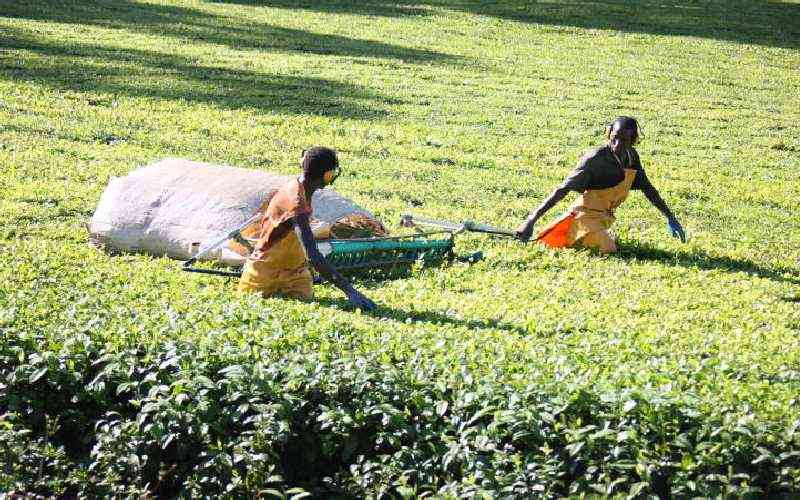×
The Standard e-Paper
Home To Bold Columnists

Workers pick Tea using a Tea Harvesting machine at a farm in Kericho. [Wilberforce Okwiri, Standard]
All is not well in the South Rift where the storm is brewing in the teacup over the introduction of mechanised agriculture.